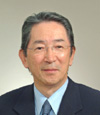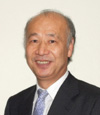About RISS
Message
Greetings from the President of Osaka University, Hideo Miyahara
Hideo Miyahara |
In order to promote active research and education towards a transition to global sustainability, Osaka University established the Research Institute for Sustainability Science (RISS) in April this year. With its motto, "live locally, grow globally," Osaka University aims to develop human resources and promote education and research activities that will contribute to our further advancement as one of the world's top-rated universities. With the participation and support of all the relevant parties, RISS aims to achieve this goal and contribute to the transition towards a sustainable society. |
Message from the Director of RISS, Masao Toyoda
Masao Toyoda |
Science and technology, especially engineering-based technological innovation, greatly influenced the economic growth of the 20th century. However, at the same time, environmental pressures such as environmental pollution, resource depletion, climate change, etc. emerged, constituting a threat to human existence, not to mention sustainable development. Technological development plays a key role in addressing the transition towards a sustainable society in the 21st century. Osaka University is committed to the realization of a secure and resilient society that ensures human fulfillment and development in harmony with the natural environment, by promoting and enhancing the creation, cultivation and dissemination of knowledge. To this end, RISS is engaged in transdisciplinary efforts to design a sustainable resource economy through the eco-innovation of science and technology. |

